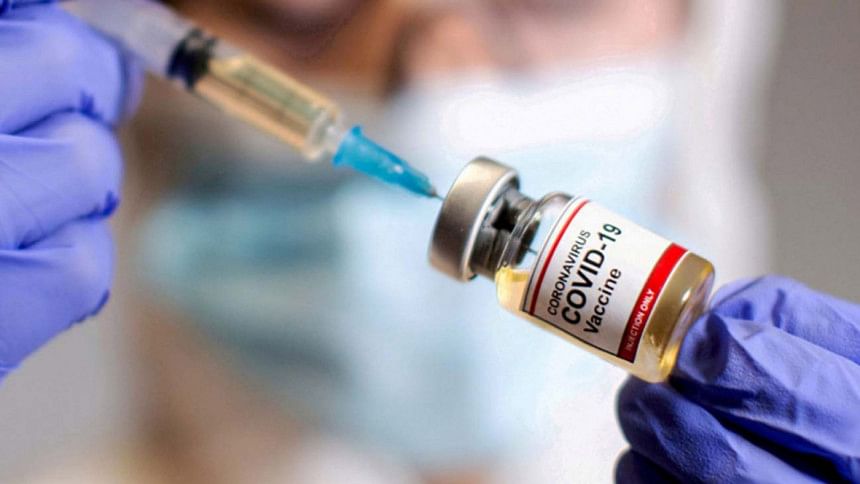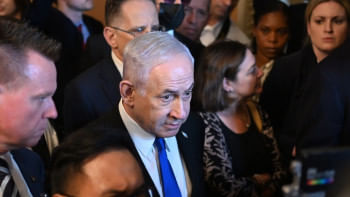Vaccinating 12-17 year olds: A plan divorced from reality

The government's plan to inoculate people from almost all age groups including adolescents without ensuring a steady supply of vaccines appears to be anything but practical.
Add to that, a lack of supply-chain infrastructure and logistics required to administer vaccines among such a large swathe of population across the country.
Covid-19 mass vaccination started on February 7 this year for people aged 65 and above, and then the government gradually lowered the age bar to 25. The bar was further brought down to 18 years to include university students in the coverage.
In a latest development, Health Minister Zahid Maleque yesterday reiterated that those aged 12 and above too will be jabbed soon if the WHO and local expert committee approve it.
The development came following the government's decision to bring school and college students back to the classrooms from September 12 -- almost 18 months after the closure due to the pandemic.
But with the vaccine supply still plagued with uncertainty and over two crore people including the vulnerable ones awaiting their first jab weeks after registration, the plan to inoculate students aged 12-17 may look rosy but it is not feasible at the moment.
"We do not have enough vaccines in stock. Vaccine supply is not smooth yet. Many people are waiting to get their first shot. The vulnerable groups are yet to be vaccinated. In this situation, the desire to expand the vaccine coverage down to age 12 does not seem viable," Be-Nazir Ahmed, former DGHS director, told The Daily Star yesterday.
Ahmed, a member of National Immunisation Technical Advisory Group, also said the committee was yet to give any opinion in favour of vaccinating children aged 12-17.
Muzaherul Huq, former regional advisor for South East Asia at the World Health Organization, said schools across the world reopened following the health guidelines, not after vaccinating.
Vaccinated individuals also need to maintain health guidelines, he said. "The focus should be on following the health guidelines."
Huq added that the government should concentrate on vaccinating the WHO-recommended priority groups that include the aged people with comorbidities.
"If we fail to protect the vulnerable age groups, then the infection and death rates will not come down," he added.
At a daily briefing on Sunday, Shamsul Haque, member secretary of the Covid-19 Vaccine Management Taskforce Committee, said currently there is no plan in place to vaccinate individuals under 18.
The country has suffered frequent hiccups in its regular mass inoculation campaigns mainly due to a dearth of doses caused by a yawning gap between commitments and compliance in vaccine supply.
The regular vaccine campaign remained suspended for around a month due to a sudden suspension of vaccine supply from Serum Institute of India.
Besides, the government also did not get the promised amount of vaccines from Covax, a global vaccine facility.
It also could not continue the special vaccination that started on August 7 because of a shortage of shots.
Bangladesh purchased six crore doses of Sinopharm vaccine from China and is supposed to get 6.8 crore doses from Covax this year. Besides, it bought three crore doses of Oxford-AstraZeneca vaccines from Serum Institute, but so far received only 70 lakh doses with the last consignment arriving in March.
"We have purchased a good amount of vaccines but received very little," said a DGHS official.
The country has so far received 3,90,25,530 doses of vaccines of different brands, according to the DGHS.
Around 1.90 crore people have got their first dose while around 85 lakh people got both doses.
Only around five percent of the target -- 80 percent of the total population aged 18 and above -- has been met.
Health officials said currently they have less than a crore of vaccine doses in stock, adding that around 50 lakh people, who got the first jab during the special drive last month, will start getting their second dose from today.
"It is not possible to start vaccinating students aged below 18 right now. We do not have that many doses," said a top DGHS official wishing not to be named.
He said some countries are administering the Pfizer vaccine among the 12-17 age group.
"We have around 10 lakh Pfizer doses in hand and around 50 lakh doses will arrive soon. But we cannot administer the vaccine across the country as we do not have the required infrastructure," said the top official.
DGHS officials said currently they have the capacity of administering the Pfizer vaccine in 22 districts, including Dhaka, as those districts have the capacity to store the ultra-low temperature vaccine like Pfizer.
A Unicef report on March 2 noted that 14 countries worldwide remained largely closed from March 2020 to February 2021. Of those countries, Panama has kept schools closed for the most days, followed by El Salvador, Bangladesh, and Bolivia.
El Salvador resumed in-person classes in schools on April 6 and Panama opened schools on May 31, leaving Bangladesh with the unenviable tag as a country with the longest closure of schools.
Experts said regardless of the vaccination status, schools should open by ensuring the health guidelines.

 For all latest news, follow The Daily Star's Google News channel.
For all latest news, follow The Daily Star's Google News channel. 



Comments